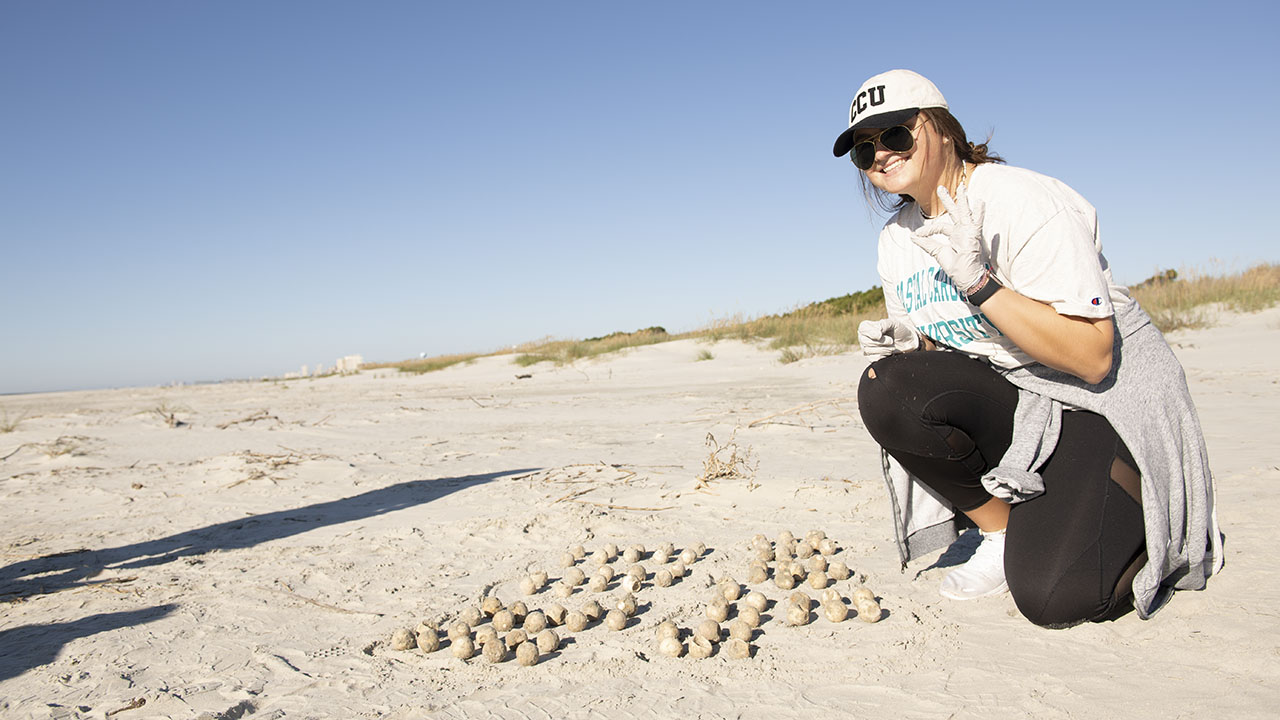
 |
 |
APPLY NOW
|
REQUEST INFO
|
Students completing the B.S. in marine science (MCSI) will have an understanding of major concepts across all four marine science subdisciplines and be able to quantitatively integrate marine biology, marine chemistry, marine geology, and physical oceanography to critically evaluate and apply these skills, practical training, and related technology to coastal and oceanic marine systems. Students completing the B.S. in MSCI will be well prepared for their pursuit of advanced degrees or employment in marine-science-related fields including research, management, education, and/or policy at government agencies, universities, and private industry firms.
Student Learning Outcomes
Students who graduate with a B.S. in marine science should be able to:
- Explain the principles, concepts, applications, and inter-relations of biology, chemistry, geology, physics and mathematics as they apply to the marine environment;
- Use the principles of scientific inquiry to describe, analyze and solve scientific problems involving marine science and related fields;
- Exhibit proficiency in the use of technology, critical thinking, and quantitative tools used in marine-science applications;
- Communicate effectively with peers, mentors, and the larger community, and
- Successfully pursue entry-level jobs or enter graduate programs in various scientific fields.
The marine science major integrates the study of biology, chemistry, geology, physics and mathematics and applies these to the marine environment. Major courses are selected from marine science, biology, chemistry, computer science, geography, geology, mathematics, statistics, or physics. Students are encouraged to select an area of emphasis in marine biology, marine geology, marine chemistry, or physical oceanography. Integrated lecture, laboratory, and field experiences provide a well-rounded scientific program. The facilities available for marine science majors include a lecture and laboratory complex, computer research labs, ocean-going and estuarine research vessels, and a full complement of oceanographic sampling equipment. Laboratory activities and research projects are conducted in various coastal habitats including Waties Island, a barrier island, marsh and upland complex owned by the University, and through collaborative arrangements with a variety of research centers. Marine science graduates are employed as marine and environmental researchers for government agencies, universities, and private industry; marine and environmental educators; high school and middle school science teachers; and in the fields of marine and environmental management and policy. Outstanding students are encouraged to pursue graduate study.
Double Majors:
Students may double major in any program which offers a B.S. degree. To complete a double major, students must satisfy the major requirements for both programs and complete a minimum combined total of 48 upper-level credits in the two majors, all with a grade of ‘C’ or better. MSCI students that complete a second major in MCES may apply 8 credits from MSCI 301/L, MSCI 302/L, MSCI 304/L or MSCI 305/L and up to four additional 300 or 400 level MSCI elective credits for a maximum total of 12 shared credits between the MSCI and MCES degrees.